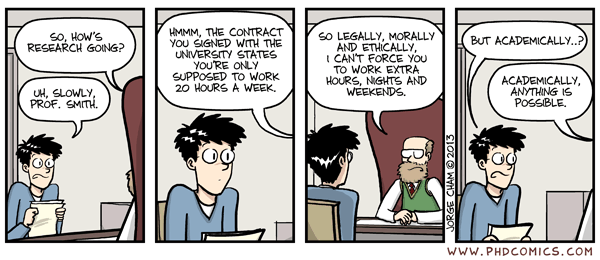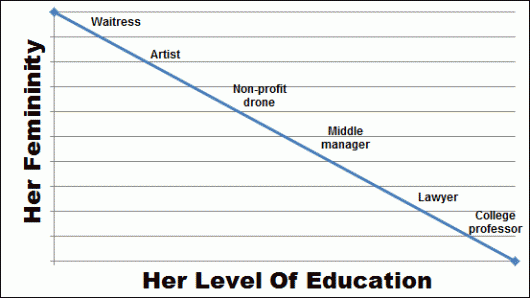No, the title isn’t meant to be a punchline.
I was reading an article about the United States’ abysmal paid vacation and holiday policies. What makes them so abysmal is that they don’t exist. A study from The Center for Economic and Policy Research explains:
The United States is the only advanced economy in the world that does not guarantee its workers paid vacation. European countries establish legal rights to at least 20 days of paid vacation per year, with legal requirements of 25 and even 30 or more days in some countries. Australia and New Zealand both require employers to grant at least 20 vacation days per year; Canada and Japan mandate at least 10 paid days off. The gap between paid time off in the United States and the rest of the world is even larger if we include legally mandated paid holidays, where the United States offers none, but most of the rest of the world’s rich countries offer at least six paid holidays per year.
I really encourage you to read the rest of the article if you’re interested. It addresses things like the paid vacations given by employers (they still suck compared to other countries) and how it breaks down depending on your pay level (poor people get screwed, what a shocker). It baffles me why employers wouldn’t want to make their employees happy, since happy employees are more loyal and productive and ultimately benefit a business in the long run. Everyone wins!
As someone who has been a perpetual student her whole life, I’ve never really experienced a “real job.” Working minimum wage at a golf course doesn’t seem to count for this discussion, since I didn’t have any benefits. But grad school has its own unique situation when it comes to things like paid leave, partially thank to the weird student-employee limbo it puts you in.
Other programs may work differently, but I’m paid on a stipend through a fellowship from the National Science Foundation. What that means is I get a paycheck deposited into my bank account every 2 weeks no matter what. It doesn’t matter if I’ve worked 80 hours or 8, if there were national holidays, if I took a vacation, if I got sick, etc.
It’s both a blessing and a curse.
The blessing part is obvious – I get paid no matter what. The potential problem is that because of this lack of regulation, workplace standards are basically up to your adviser’s whim. My adviser happens to be extremely hands-off and doesn’t care what hours you’re in lab, if you’re working from home, or if you’re taking vacations. He just cares that you’re getting good work done, even if that takes less than 40 hours a week because you’re efficient. He allowed a grad student to work from abroad a month at a time because she was in a long distance relationship and her work was purely computational. You don’t have to approve vacation times with him ahead of time, or even really warn him about it . He expects you to be motivated enough to manage your own schedule and only take vacations if you think you can. So when I wanted to see the Postal Service play in Portland last Wednesday, it was no big deal to take a day off in the middle of the week. The downside to all of this is that our lab tends to get empty thanks to our random hours not really overlapping, and sometimes I wonder how long it would take him to notice I was gone if I dropped dead.
But the curse is more obvious if you have a more stereotypical, demanding professor. From talking to other grad students, the following experiences seem all too common. Many professors expect you to work weekends and put in more than 40 hours a week despite us not having paid overtime, arguing that’s just how grad school is. If your vacation request isn’t outright rejected, expect emotional manipulation to try to guilt you out of it. You’ll be compared to “harder working” grad students and be told “this is just how things work in academia.” Your desire to want your job to be treated like a job will risk you getting labeled as unmotivated and not willing to make sacrifices in the name of science. You’ll worry that attempting work-life balance will lose you that letter of recommendation, regardless of the quality of your research. Yeah, maybe what you did was excellent, but you could have always done more.

Regardless of the type of professor you have as an adviser, there’s another element to the curse: Without set hours and policies, you feel like you’re always working. Your research never stops. You may have headed home for the night, but you’re still thinking about how your experiment went wrong or what analysis you can do next. You feel obligated to read another paper or keep working on that code you couldn’t debug during the day. There’s always something more you could be doing with your project. But when you feel like you’re working every minute of the day with no reprieve, you become exhausted. It’s harder to focus when you’re actually at work because you’re burnt out. And that in turn makes you feel guilty for not working hard enough, so you keep working when you’re at home, which makes you exhausted…etc, etc, cycle of doom.
But without set policies, it’s difficult to set a regular schedule. Having “sick days” you can use lets you know its okay to take off work when you’re sick, instead of feeling guilt to come in or keep working from home. Having “vacation days” encourages you to actually take time off for your physical and mental well-being instead of burning out from feeling required to work 24/7. Some people are great at self imposing work restrictions, and I think that’s often a key to success in academia. It’s still something I’ve yet to figure out, and its made more difficult by the “You Must Always Be Working And Only Care About Your Science” mentality that grad school promotes.
Unfortunately that mentality is pervasive through academic culture. You see it when academics tell students they shouldn’t care where their postdoc or faculty position is located because they should just be happy they have a job. They should be nobly pursuing SCIENCE; the fact that the job is located in a place that makes them miserable or separates them from a significant other should be irrelevant.
I’m certainly not trying to say grad students have it the worst. With the right adviser and self control, we can have amazing flexible schedules that don’t drive us crazy. I’d say I’d wish grad school was treated with the same standards as a “real job,” but then I remember the sad facts I presented at the beginning of this post. Many Americans don’t get paid vacations at all. Even when paid sick leave is required, employers don’t necessarily give it. And all of this isn’t even getting into bigger workers issues like minimum wage vs. living wage, or wage theft, which arguably also happens to graduate students in the form of required student fees. In what other job would it be acceptable to have to pay 5% of your salary to keep being employed?
I guess I have to keep things in perspective. At least I don’t work for Walmart.








